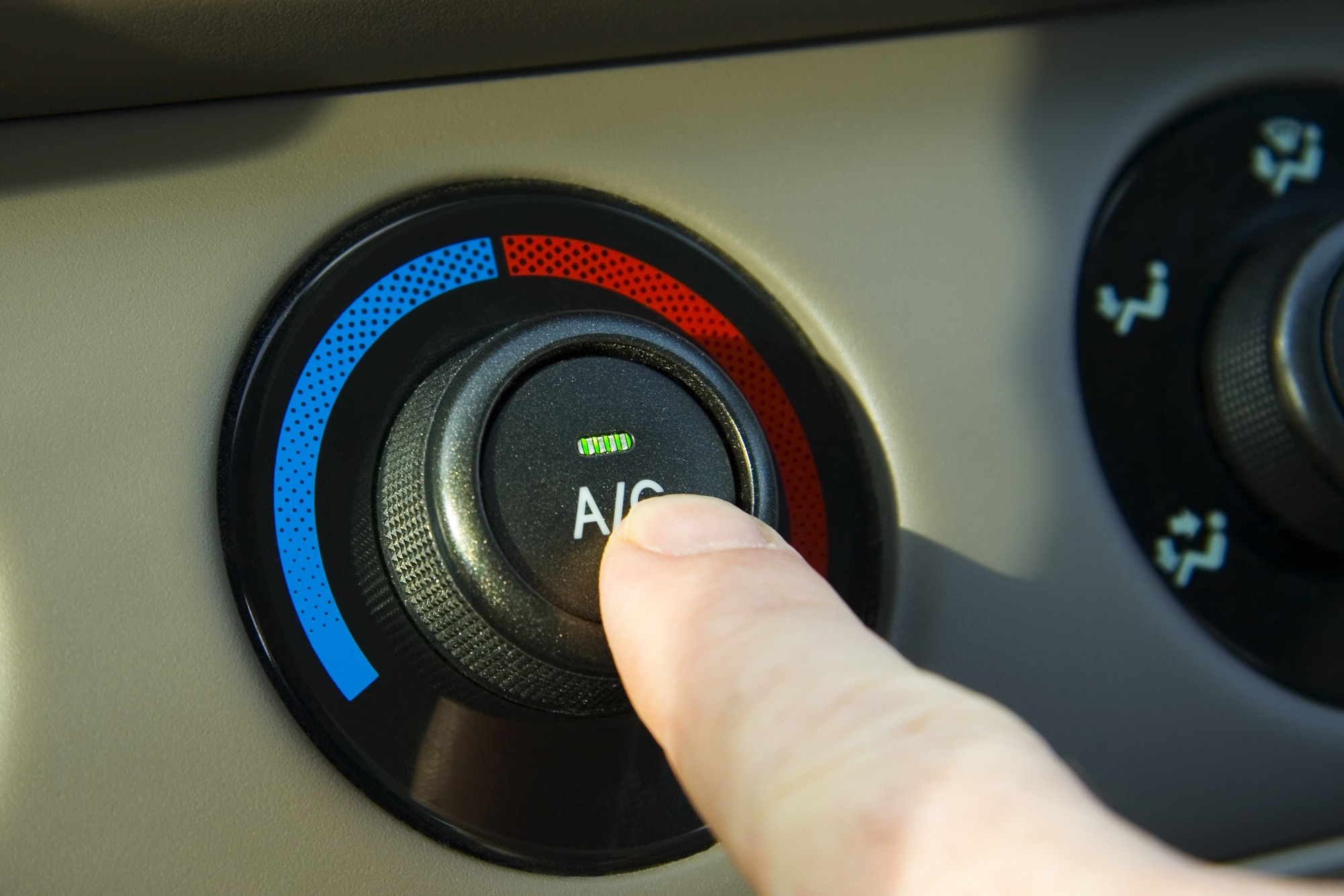Common Car Air-Conditioning Problems and What it Takes to Repair Them
As your car gets older, the A/C system may need some attention.
 Shutterstock
Shutterstock
Article QuickTakes:
When hot weather hits, you may discover your car’s air conditioning may not be cooling you as well as it should. There could be many reasons for that. Here we explore common car A/C problems and how to address them.
General Diagnostics
Average Inspection Cost: $70 - $100
Air-conditioning problems can start out minor but get expensive if not diagnosed and repaired early. Always have your A/C checked at the first sign of trouble. A small leak can lead to loss of refrigerant, air or moisture contamination, and damage to other A/C parts. An experienced mechanic should check the operation of the controls, measure the system pressures, and perform a leak test to detect if/where refrigerant is escaping.
Refrigerant Lines
Average Repair Cost: $650 - $715
Checking the refrigerant lines is a good place to begin when addressing common car air-conditioning problems. These lines carry A/C refrigerant, which is pressurized and changes from a liquid to a gas as it absorbs heat, cooling the air. The lines themselves as well as the rubber seals at their connection points can deteriorate over time, resulting in refrigerant and system-pressure loss. The solution is to replace the malfunctioning parts.
Compressor
Average Repair Cost: $800 - $1000
The A/C compressor circulates refrigerant throughout the system. It can stop working due to an electrical failure or a loss of refrigerant, which can cause irreparable damage. You may need to replace the compressor.
Condenser
Average Repair Cost: $600 - $700
The A/C condenser pressurizes the vapor in the refrigerant lines, turning the gas back into a liquid. On internal-combustion vehicles, it’s typically located between the grille and radiator, which leaves it vulnerable to collecting dirt and debris. Such buildup can reduce airflow across the condenser’s fins—which help cool the refrigerant—and affect A/C operation. Road debris may also puncture the condenser and cause a refrigerant leak. This could require that you replace the condenser.
Pressure Switch
Average Repair Cost: $250 - $275
Pressure switches monitor the refrigerant in the A/C system. If refrigerant pressure is too high or too low, the switch will turn off the compressor. A switch malfunction may prevent the A/C compressor from turning on during normal operation, in which case the switch would need to be replaced.
Blend Door Actuator
Average Repair Cost: $315 - $360
When you select a temperature setting, a blend door actuator controls the mixture of hot and cold air to achieve the desired result. Another blend door directs airflow to your chosen locations, such as the floor, the dash vents, and/or the defroster. Blend doors can fail mechanically or electrically, and they can be difficult to access. The door itself may bind up or the actuator motor may fail at some point.
HVAC Controls
Average Repair Cost: $400 - $425
The HVAC controls in most new cars are partially electronic, wherein the blend doors move via a mechanical linkage, or fully electronic. A broken electronic switch or mechanical linkage on the control head may prevent the A/C from turning on or operating properly.



